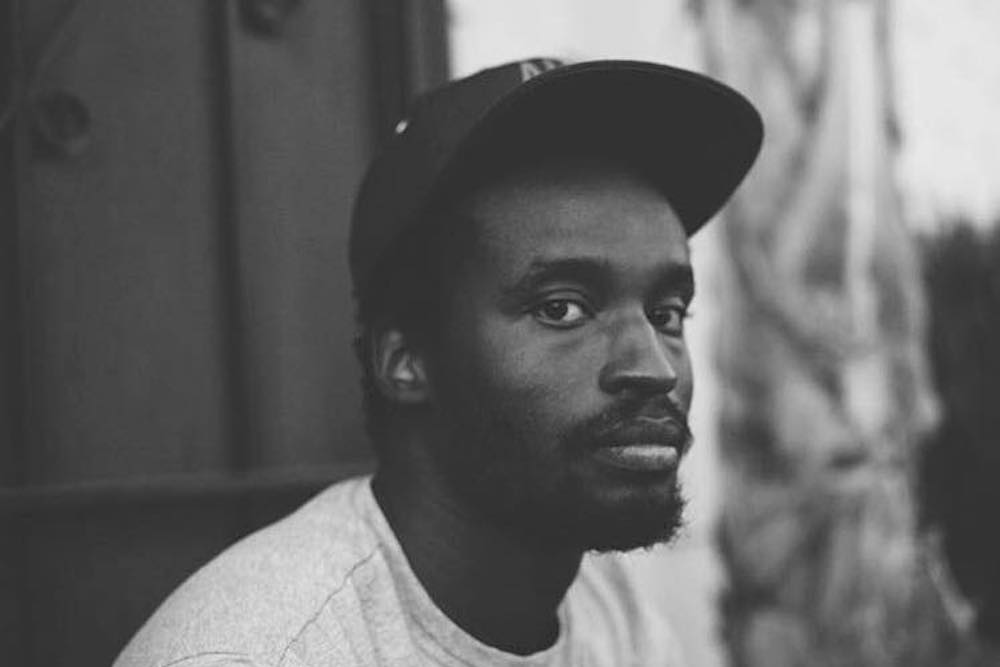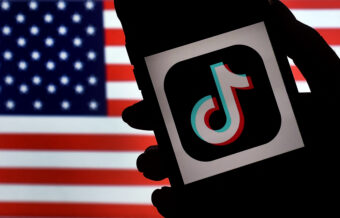Although Kendrick Lamar‘s new album DAMN. is far more accessible and contemporary than its predecessor To Pimp a Butterfly, the past still plays a major thematic role. There is the frequent evocation of the Old Testament, as well as the legendary Kid Capri’s wave-splitting foreboding on “ELEMENT.,” and throwback references to peak Jay Z and Juvenile raps. There’s also a more direct callback: good kid, m.A.A.d. city producer DJ Dahi is back on duty after being absent from TPAB, aside from a few studio visits.
The one song DJ Dahi produced on good kid, m.A.A.d‘s was the album highlight “Money Trees,” a woozy cut that both summarized the narrative and featured Jay Rock’s exceptional verse. His input has expanded this time around, though. DJ Dahi is credited on the actually pretty good U2-featuring “XXX.,” the tripped-out BADBADNOTGOOD collaboration “LUST.,” the Rihanna-assisted future radio smash “LOYALTY.,” the penultimate track “GOD.” and “YAH.,” which acts as a comedown from “DNA.”
But the credits only hint at the fact that DAMN. was birthed from a sense of camaraderie. DJ Dahi recalls that the “Kung-Fu Kenny” motif was, in part, inspired by their love of kung-fu movies—he specifically cites The Karate Kid and a film “referenced on one of the Wu-Tang songs” from the collective’s debut that’s on Netflix (he doesn’t remember the name, but The 36th Chamber of Shaolin, where the album got its namesake, is the only one available on the service). There’s also their shared search of spiritual strength in a difficult world. But perhaps the main guiding principle was a more obvious one: How do we make this album good?
“Initially, we kinda went into it and were like, ‘We wanna make 10 perfect songs.'” DJ Dahi tells SPIN over the phone. “And then from there, it kinda just trickled down into having these sort of core themes of the record.
“A lot of people kept asking me, ‘Is it going to be a jazz album?’ It’s gonna be different, it’s definitely a more contemporary project that people from the left and right are able to get.”
A couple of days after DAMN.‘s rollout, DJ Dahi spoke to SPIN about producing the five aforementioned tracks. Read what he has to say below.
“YAH.” (co-produced by Sounwave, Top Dawg, and B?kon)
“YAH.” was from a session we did in New York. We literally just had a jam session and just started to go in and make a bunch of beats. I’d get on the mic and I’d start humming melodies and they’d be like, “Oh, I like that part.” We kept that one part and after that Kendrick started to write.
We were at the A$AP Yams concert and then we just all went to the studio that week and we just started making records.
I remember that night we had all sat down and listened to albums. You know what I’m saying? Just listened to music. From there we just said, “Alright cool, we got this. Let’s go in and let’s just start having a jam session.” We made like 20 records that night. We had like 20 ideas and that was the one that stuck. I had never really made music like that before.
“LOYALTY.” (co-produced by Sounwave, Terrace Martin, Top Dawg, and Kuk Harrell)
I added the drums and I’m singing on there, too. Terrace had this loop and he brought it in and Kendrick just loved it. He was like, “Yo, can you mess around with this?” Initially, he had the loop, but I think he gave it to Sounwave and he chopped it and kind of made the pattern. I’m a drummer, so I came in and just added drums to everything to get the pocket right.
Initially, I kinda went in there and did melodies and was like, “here’s the melody,” and then we wrote the words for me to sing my part. And [Kendrick] was already saying, “We gotta get Rihanna on this. This has gotta be a Rih record.” From there, we structured it so when Rihanna came in, it would be easy. I didn’t really know how it was going to turn out, to be honest, but I was definitely really happy because it’s not a stretch record. People will think when they see those features that this is gonna be a super-duper radio record and be trash—but nah, it’s got some structure.
“LUST.” (co-produced by Sounwave and BADBADNOTGOOD, additional vocals by Kaytranada, strings by Kamasi Washington)
I’ve known BADBADNOTGOOD for a couple years, I’ve been a huge fan of their music. They had sent Kendrick some music, and I knew that Sounwave had started a template of what the record was going to sound like. When I got my hands on it, it was just a loop. Me and Kendrick just talked like, “Yo, what if we tried this? What if we tried that?” We just wanted this record to be the one that has a feel like, “I haven’t heard this before.” That was kind of the goal. I love the record, that’s probably one of my favorite records I’ve done ever. It kinda keeps you on your toes, but it just moves—it’s great.
It definitely went through stages of trying different things, but for some reason, this record wasn’t really as difficult for us to place it. Kendrick is a really great editor when it comes to his music. He’s always like, “OK, that’s enough” or whatever. We were just kinda in a room like, “Oh, let’s try this,” or “Oh, let’s do that.” So really, it was a constant—even though it sounds like madness, it really wasn’t as hard as people would assume.
[The RAT BOY sample] was me because we had worked together on some stuff and he gave me some vocal stems. Kaytranada and BADBAD are really good friends, they got on and I guess they had just made the sample together and then they had sent it to Kendrick, because I didn’t even know who was on it until Alex [Sowinski, BADBADNOTGOOD’s drummer] told me like, “Yo, you know we got Kaytranada.” I was like, “Oh, shit!”
“XXX.” (co-produced by Mike WiLL Made-It, Sounwave, and B?kon)
Initially, he had this record that he started with Mike WiLL and he had the basic structure of the record, but he wanted some more energy and more vibe. When I came in to work on the record, I went, “Oh, this is dope, but I don’t know, I gotta finish it and add some stuff to it.” I came in on the second part of the record and just turned it up some more with everything that makes it like just a more aggressive energy that I think represents what he’s talking about—his almost revenge, I-don’t-have-no-type-of-mercy type vibe.
[Lamar] and Bono had been talking for a while about doing a collaboration. We wanted to change up the beat. Me and Sounwave got in and just produced the third part of the section together and it kinda fit, man. It was really just a thing we had that we didn’t know if we were going to be able to use it in something. We kinda just tried it out like, “Oh, this could sound dope after the chaos of the first two parts of the record.” It’s funny [people were] kind of expecting U2 to be trash, but it was good.
“GOD.” (co-produced by Yung Exclusive, Cardo, Sounwave, Top Dawg, and Ricci Riera)
You know, he’d been saying he was just saying that in the hook just walking around the studio for a long time: “This what God feel like / Laughin’ to the bank like a-ha.” He was doing it on different types of beats. So it was a matter of we just gotta make the beat that fits that record, you know? It was just kind of an idea he kept cookin’ up. It was probably one of the last few records we were working on.
“GOD.” was him kind of putting that out in the atmosphere. It kind of just came together from that point: We’ll just call the record “GOD.” because that’s the main thing he’s repeating. It was just kind of an idea he kept cooking up. It was probably one of the last few records we were working on.
DAMN. in closing
For the sequencing, I think did we tried different playlists. We really had songs that we thought would fit a certain flow of an album. We studied all the great albums of the last [couple of] years. We listened to Lord Willin’ from Clipse and to all of Kanye’s Graduation. We’re just kind of sequencing shit like, “OK, we like the flow of this, this record fits here, this record fits there.”
I think probably my favorite moment was a conversation I had with Kendrick about faith. It was just me and him, and we just had a talk about religion and us as black men and having a sense of who we are and how we got to this point in our lives—knowing that we gotta be right. We all know what good and bad is. As people, we all know what’s right or wrong but sometimes we justify it by saying, “Fuck it, I think this is right so I’m gonna do it.”
I think that was really an insight into our relationship as musicians but also collaborators, where I felt like we were on the same page. We kind of see the world from the same lens, and that was a really dope process. We even did another version of “PRIDE.” That was like a huge point of the album [process] in the sense where everything kind of got rolling, and that was an important factor of what theme that we’re going to try to get into. Studio conversation is always dope because it does sometimes affect the songs that come out.





